Berge Bulk Retrofits Bulk Carrier with WindWings
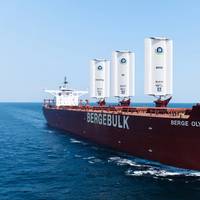
Singapore-based Berge Bulk has launched a ship fitted with steel-and-composite sails to cut fuel consumption and carbon dioxide emissions, with an eye to converting more vessels that ply routes with favourable wind conditions.The dry bulk carrier Berge Olympus, equipped with four sails known as WindWings, is chartered by mining giant Vale and will sail between Brazil and China, Berge said on Tuesday.The sails will save up to 20% fuel or six tons per day on an average worldwide…
Volvo Penta and CMB.TECH Partner on Dual-fuel Hydrogen Engines
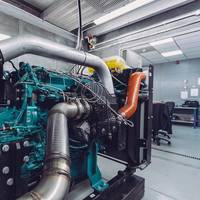
Volvo Penta and CMB.TECH announced they are working together to accelerate the development of dual-fuel hydrogen-powered solutions for both on land and at sea applications.CMB.TECH owns, operates, and designs large marine and industrial applications powered by hydrogen and ammonia – fuels that it both manufactures and supplies to its customers. Volvo Penta is a manufacturer of engines and complete power systems for boats, vessels and industrial applications. The companies have…
Germany to Charter Four FSRUs in Push to Cut Reliance on Russian Gas
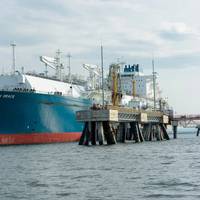
The German government on Thursday signed agreements for the charters of four floating storage and regasification units (FSRUs), as it works to become less reliant on Russian gas, as FSRUs will enable it to import LNG from other sources.The agreements were signed for the charters of two FSRUs owned by Oslo-listed firm Hoegh LNG, and two owned by Dynagas. Hoegh LNG FSRUs will be operated by RWE, while Uniper has facilitated the charter of two FSRUs managed by Dynagas Ltd.Höegh LNG said that the detailed FSRU contracts with the German Federal Ministry for Economic Affairs and Climate Action…
CSL Completes B100 Biofuel Tests
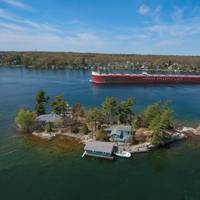
In late November 2021, CSL successfully completed the world’s longest-running trials of B100 biodiesel on marine engines, accumulating nearly 30,000 running hours. Conducted on half of CSL’s Canadian fleet, the tests resulted in a 23% total fleet life cycle reduction of CO2 as compared to marine gas oil (MGO).During the trials, conducted in partnership with Canada Clean Fuels and with the collaboration of Sterling Fuels, 14,000 tonnes of MGO, a fossil fuel, was substituted for 100% bio-content second-generation biofuel…
Catching Cruise Off-Guard: Norway’s zero-emissions fjord cruises
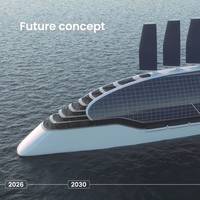
Norway on Jan. 1, 2026, will begin a ban on cruise ships powering through the Unesco-listed heritage fjords on anything but zero-emissions propulsion. For now, that means battery power, but few of the 190 cruise ship calls to these fjords are made with that kind of electro-chemical fuel on board. From now until 2026, you can still cruise the fjords on a closed-loop, or in-line, scrubber system, but few cruise ships have these installed. The new rules mean cruising elsewhere, finding…
IMO Calls for Govts Support for 50 % Co2 cut by 2050
The ICS Chairman was commenting on the ambitious IMO strategy to cut the total greenhouse gas emissions of shipping by at least 50% by 2050, compared to 2008 – with an agreed efficiency goal, as an average for the sector, for a 40% improvement by 2030 compared to 2008, and a 70% improvement by 2050 – so that the entire sector will be in a position to decarbonise completely, consistent with achieving the 1.5 degree climate change goal identified by the UN. “It’s important that governments recognise the enormity of what has been agreed by IMO. While the ultimate goal is zero emissions, a 50% total cut by 2050 is very ambitious indeed, especially when account is taken of current projections for trade growth” said Mr Poulsson.
S.Africa Considering Ship-Based Power Generation
South Africa could deploy power barges using gas to generate electricity to help overcome chronic supply shortages, a senior government official said on Tuesday. Under the proposal, one of 170 submissions sent to the government after it requested ideas for a gas-to-power programme, power generating ships or barges would dock at ports and supply electricity to the national grid. Africa's most advanced economy is struggling to keep the lights on as rolling power cuts are implemented almost daily by power utility Eskom to save the national grid from collapse. "Power barges are a serious option, definitely yes," Ompi Aphane, deputy director general for energy planning at the department of energy told journalists in parliament.
Joint Petroleum Development in South China Sea Makes Sense
Shared development of oil, gas and possibly other natural resources is the most promising option for reducing tensions in the South China Sea and should be the focus of efforts to improve diplomatic relations between China and its coastal neighbors. Joint development agreements (JDAs) are already common across Asia. Most of the countries with a disputed claim in the South China Sea have signed at least one joint agreement to explore for oil and gas, either in the South China Sea or in neighbouring areas like the Gulf of Thailand and the East China Sea, so there are plenty of precedents to draw on. The basic principle is that countries agree on a legal framework for exploration and production…
Full Speed Ahead with Gas
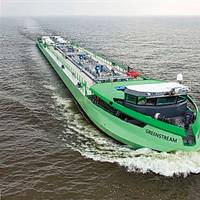
Dutch-based Peters Shipyards introduces revolutionary Inland Shipping concept. Planned, developed and built by Dutch Peters Shipyards, located in Kampen, a unique inland tanker is now the world’s first river vessel driven by combustion engines consuming purely natural gas. In April, the innovative new vessel was handed over to its time charterer, Shell Netherlands, who will operate the “MTS Greenstream,” via Interstream Barging, between the Netherlands and Germany; primarily on the river Rhine.
IMO to Shed Light on HME Disposal Confusion
Guidance circular to be issued for ships calling at ports without reception facilities for Harmful to the Marine Environment (HME) waste, including Hold Washing Water (HWW). Shipowners pleas for greater clarity on what to do when there are no adequate port reception facilities to receive residues including Hold Washing Water (HWW) from cargoes deemed “Harmful to the Marine Environment” (HME), have been substantially answered after an important decision at the IMO Marine Environment Protection Committee held on 13-17 May. With effect from 1 January 2013, shippers and shipowners faced difficulties in meeting the requirements of the amended…
German Pilots Choose SevenCs Software
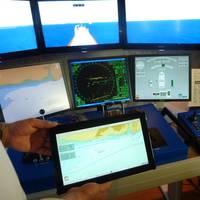
German Pilot Associations choose SevenCs to Develop Portable Pilot Unit Software. Five German Pilot Associations for the Elbe, Emden, Hamburg, Jade/Weser II and Kiel Canal I (Brunsbüttel) have chosen Hamburg-based maritime navigation specialists SevenCs GmbH to supply their Orca Pilot Portable Pilot Unit (PPU) software. At the same time, SevenCs, in conjunction with the Pilots, will develop new next generation PPU software, and deliver training to all the associations’ 625 pilots. Commenting on the new project, Capt.
U.S. Shipyards Fight to Return Icebreakers to Service

The Polar Sea heavy icebreaker that the U.S. Coast Guard plans to mothball is in excellent condition and could be returned to active service in two years, giving the government a decade or more to search for longer-term solutions, a representative of America’s shipyards told Congress last week. The United States currently has no active heavy icebreakers and only one medium vessel to protect rapidly intensifying national security and economic interests in the Arctic and Antarctic.
Maersk Line Introduces Sustainable Container Floors
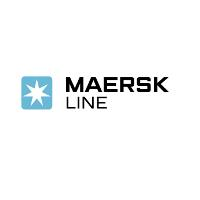
Today, Maersk Line announced a new policy to refrain from purchasing containers with floors made of uncertified tropical hardwood. “Illegal logging is widely recognised as a serious threat to forests, people and wildlife. We feel obligated to use our purchasing power to push for higher standards and ensure that the timber we use for container floors come from responsible forestry,” says Jacob Sterling, Head of Climate & Environment, Maersk Line. Traditionally, shipping lines have had their containers fitted with tropical hardwood floors.
Talking About the John J. Harvey
Everybody talks about the John J. Harvey, and quite a few of them are doing something about it. The chipping, scraping, and painting you'd expect a 74-year-old fireboat to require has proceeded since the vessel became privately owned in 1999, but that's only the beginning of the discussion. For within the city the fireboat served for its first sixty years, a peculiar love/hate seems to have developed toward the harbor. That, more than leaks, can influence the future of the most historic of vessels, even as it affects contemporary ones doing their daily chores. The John J. Harvey was built for these waters in 1931, launched into them by the Todd shipyards at Brooklyn and serving them steadily, reliably, even heroically.





